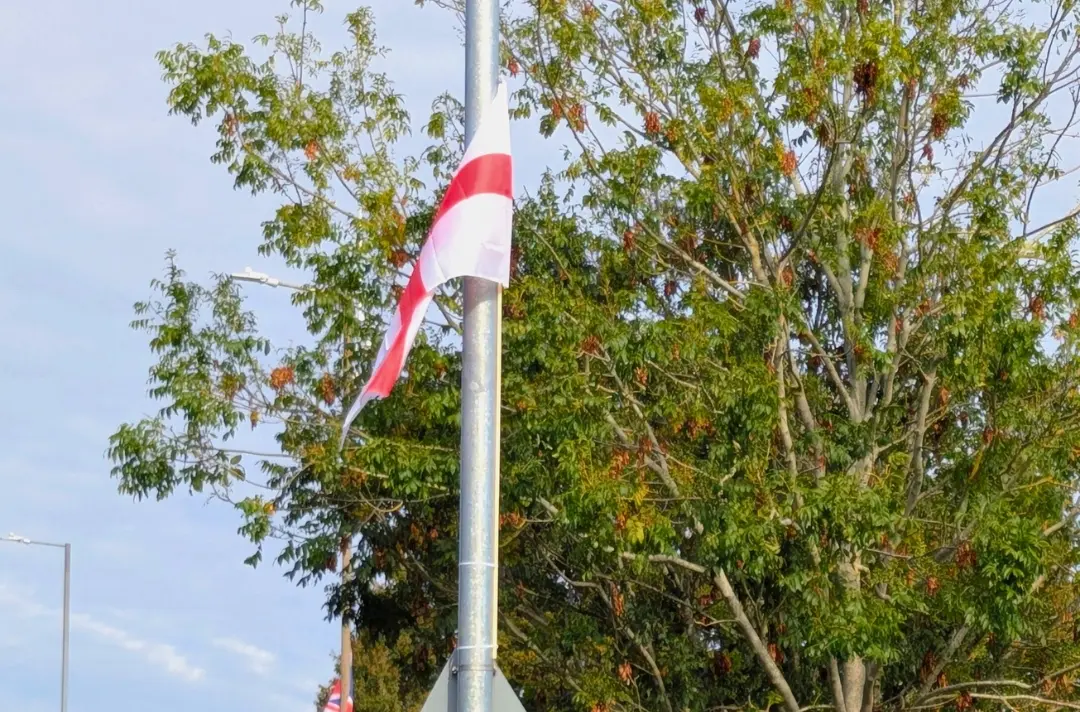18 October 2025
Free speech comes with a responsibility to listen
Ivan Radford

As community tensions remain taut around the country, Ivan Radford reminds us to listen before we speak.
Free speech. You will have heard those two words a lot in recent weeks, as people are increasingly vocal about their views, fears and frustrations. In a society where inequality is rife, resources are scarce and public services are stretched, it is a fraught time for many. Last month, a rally in London channelled that anger into a march that called for tighter controls on immigration. Not everyone marching shared those views, but they all stood under a banner that promised to ‘unite the kingdom’. So why, then, does it feel so divided?
From not being able to see a GP to the cost of simply existing from day to day, our society has let a lot of people down on some level. Thanks to a culture that puts profits before people, austerity, and a social media landscape that makes it easy to consume false information and ignore other perspectives, our country has become tragically fragmented in the past decade, leaving people feeling isolated and left behind. You might feel that way right now. You are not alone.
Marches and protests outside hotels don’t solve these problems, just as they don’t represent the entire population’s views, but they are a sign of very real anxieties and struggles. Free speech is essential in any democracy. Speaking out has rarely been more valued – the thing lots of people have in common, wherever they stand on the political spectrum, is the feeling of not being heard.
The far right minority groups that seek to harness this feeling have their own agendas, but to dismiss anyone who feels frustrated as simply being far right, without seeking to understand them, is doing them a disservice. At the same time, any words or actions that step over the boundary from frustration into hate speech – into abuse or personal attacks – isn’t the solution either. Everyone is created in the image of God (see Genesis 1:27) and deserves to be treated with respect and dignity.
Freedom of speech, the Human Rights Act 1998 notes, is subject to ‘conditions, restrictions or penalties’ that are ‘in the interests of national security … public safety, for the prevention of disorder or crime’ and ‘the protection of health or morals’. It is critical to report hate crime incidents whenever and wherever they are encountered. They are unacceptable.
Free speech is important, but listening is even more so. James 1:19 reminds us: ‘Everyone should be quick to listen, slow to speak.’
When was the last time you paused to understand the fear someone faces rather than dismiss them with a label? To advocate for politicians to listen too, so that systemic change can happen to address poverty and exclusion, and help the most marginalised people in society?
Before you speak freely, do you listen freely to understand the impact your words have on others? To sincerely engage with their pain and experiences rather than scapegoat them with a derogatory term?
In recent months, people have become emboldened to speak their minds, particularly around the topic of immigration. In many places, flags have been hung on lampposts. To some, this is a display of national pride. To others, thanks to a historical association with, and appropriation by, far right groups, it suggests an anti-immigrant threat. Different people see different meanings in these symbols – it is only by listening to others first that we can understand if our words or actions might hurt or harm someone.
As Christians, we shouldn’t be afraid to share our own signifiers of God’s Kingdom: a countercultural place of peace where we love our neighbours. We represent a community of equality, rooted in an abundance of love – a stark contrast to a world where compassion, as well as resources, is so often finite.
This love shows grace, values everyone, welcomes the stranger, supports people in need and lives with difference respectfully. We show it first by listening to others, seeking to understand them and helping to make sure that nobody is unheard, marginalised, attacked or excluded.
Our mission is to bring fullness of life for all with Jesus, not just fullness of life for those we agree with. We are called to draw people together not through fear but through hope, demonstrating to everyone: no matter your situation, fears or views, you are not alone: God hears you and loves you.
Free speech is your right, but what words are you using? Who are you listening to?
Reflect and respond
- Who can you sincerely listen to and understand in your community?
- Read through song 459 in the Army songbook. How freely do you share God’s love and peace every day?
- Pray for political leaders to listen and implement change to help people who are marginalised and in need.
Written by

Ivan Radford
Managing Editor











